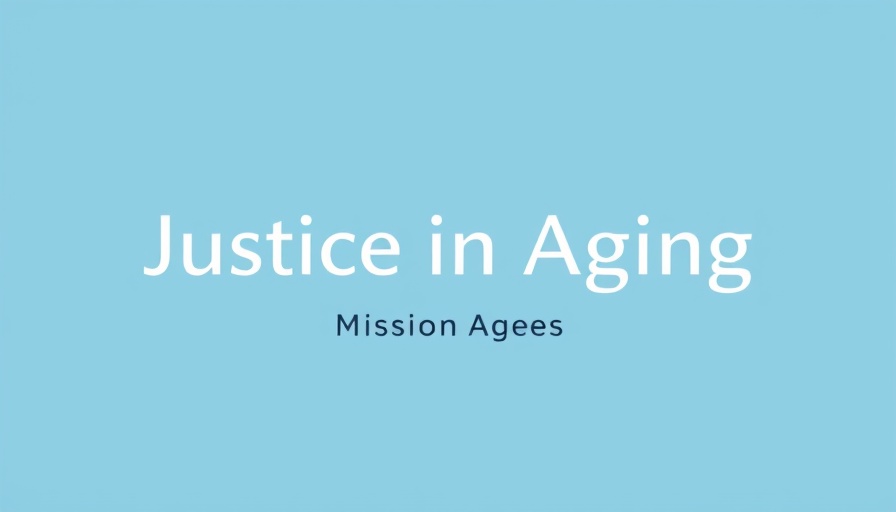
The Need for Inclusive Representation
California's Racial Equity Commission faces a critical moment in representing the voices of older adults and disabled people of color. Recently, 23 advocacy organizations have banded together to demand that this vulnerable demographic is appropriately included in the Commission's framework. These groups emphasize that the commission must reflect California's diverse population, ensuring that the needs and concerns of older adults who experience racial and disability disparities are front and center in policy discussions.
Advocacy Efforts and Community Support
The advocacy for representation stems from the broader framework established by organizations dedicated to addressing social and racial inequities. Advocacy and Community Engagement (ACE) programs across California, such as those run by Disability Rights California, play an instrumental role in highlighting these issues. They not only provide legal services and resources but also engage communities to empower individuals with disabilities, emphasizing that collective action can change institutional frameworks.
The Importance of Representation in Policy Making
Why is representation crucial? The answer lies in the data and personal experiences that reveal systemic barriers faced by older adults and disabled individuals of color. Having them represented within the Racial Equity Commission will ensure that policies are equitable and adequately address their unique challenges. These challenges include access to healthcare, housing stability, and adequate support services that are often skewed against marginalized communities.
Challenges Facing Older Adults of Color
Older adults who are also people of color confront a unique set of challenges that can perpetuate their marginalization. For instance, they may face discrimination in healthcare settings, complicating their ability to receive necessary care. Additionally, socioeconomic factors further exacerbate these inequities, creating barriers to transportation, social services, and mental health support. By advocating for their representation, these organizations aim to elevate voices that are often silenced.
Future Engagement Opportunities for Community Members
As community members, it is essential to engage with these advocacy efforts. Older adults and their families can participate in local events, town halls, and workshops designed to raise awareness and promote dialogue around racial equity and disability rights. For those who wish to support these initiatives, volunteering with organizations that specialize in advocacy for these populations can make a meaningful impact.
Moreover, community members are encouraged to share their experiences and challenges. By contributing personal stories to these discussions, older adults and disabled individuals can further influence how policies are shaped, ensuring they create real-world solutions that lead to tangible improvements in their lives.
Embracing Diversity: Beyond Just Representation
Inclusion is more than just a seat at the table—it involves actively listening to and acting upon the needs expressed by diverse communities. As California embraces its role as a leader in racial equity, all marginalized demographics must work together to create policies that reflect the needs of the state's diverse population.
By advocating for the representation of older adults and disabled people of color within the Racial Equity Commission, these 23 organizations not only stand for the empowerment of specific communities but encourage broader societal change that champions justice and equity for all.
Conclusion: Take Action for Inclusive Representation
As the fight for equity progresses, the message remains clear: align with organizations advocating for the inclusion of all voices, especially those historically marginalized. Join in community efforts or consider volunteering with agency programs to amplify this crucial work. Ensure that the voices of older adults and disabled people of color are not just represented but are pivotal in shaping equitable futures.
 Add Row
Add Row  Add
Add 




 Add Row
Add Row  Add
Add 

Write A Comment